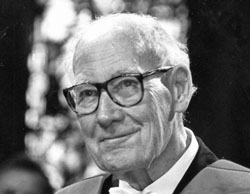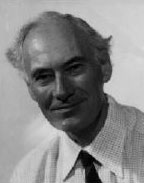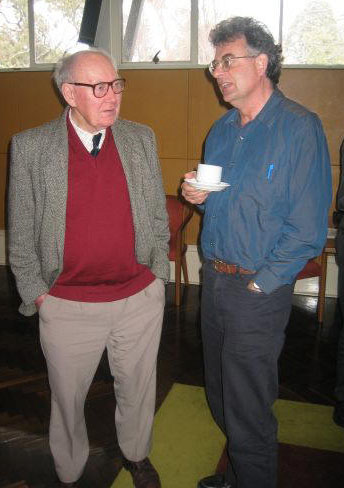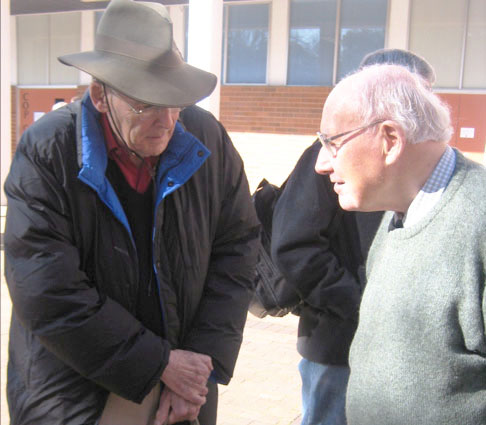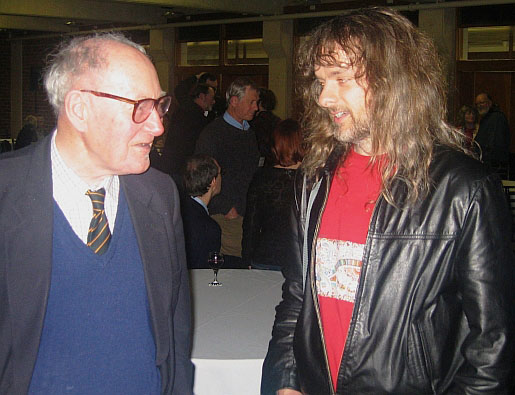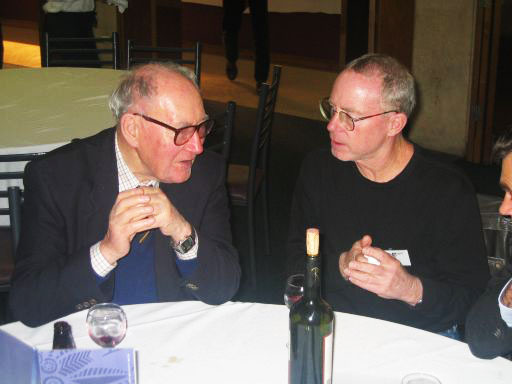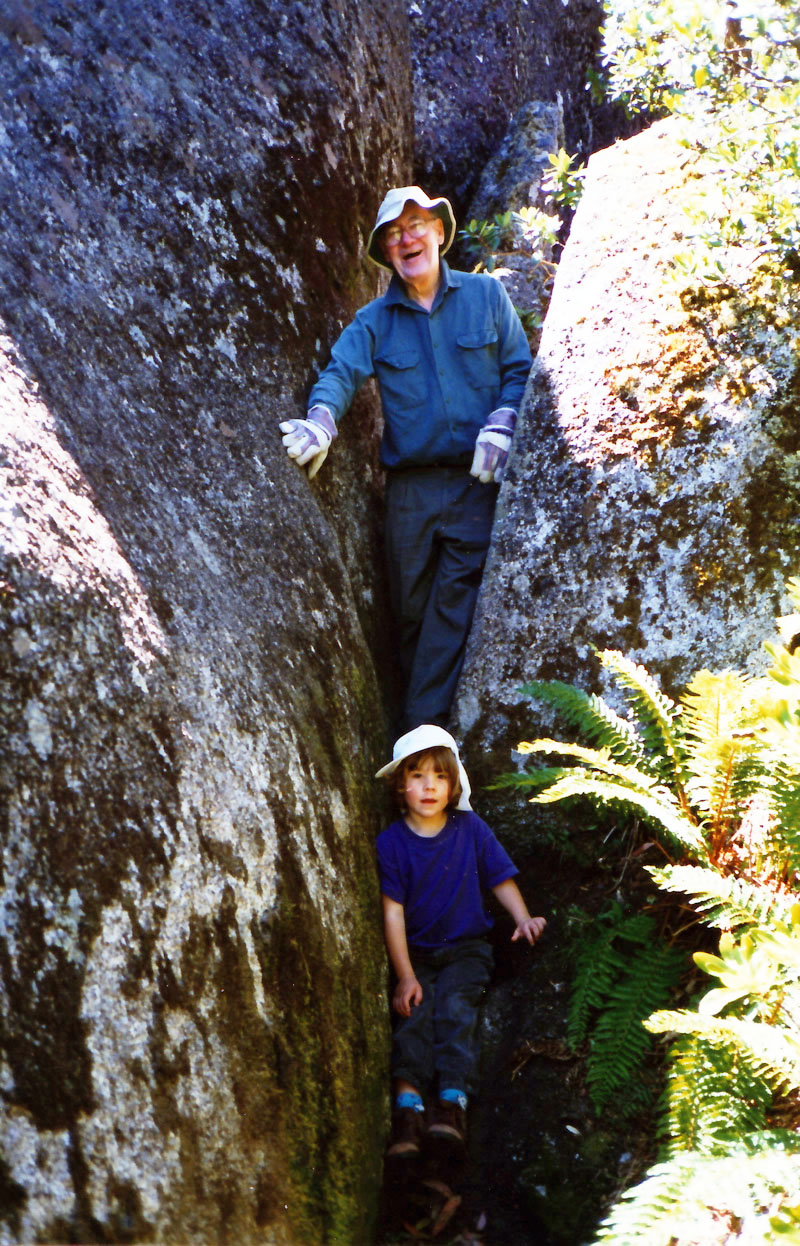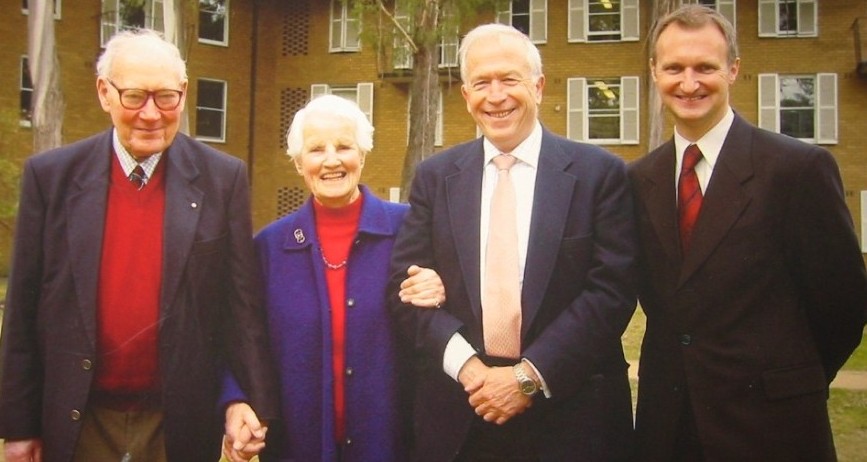J. J. C. Smart, 1920 - 2012
John Bigelow, with Elizabeth Smart and Helen Smart
In recognition of his contribution to philosophy he was made a Companion of the Order of Australia in 1990 and was awarded an Hon.D.Litt by the Universities of St. Andrews (1983), La Trobe (1992) and Glasgow (2001).
Smart was born of Scottish parents in Cambridge, on September 16, 1920, where he attended The Leys School as a boarder. As a boy he haunted the university colleges’ cricket grounds and got to know cricketers of repute. This was the beginning of his lifelong passion for the game. Smart’s father, W. M. Smart, then the John Couch Adams Astronomer, was an important influence in his life. His love of mathematics and of long walks originated at that time.
In 1937 his father became Regis Professor of Astronomy at Glasgow University, and the family, including Smart and his brothers Alastair and Ninian, moved to Scotland.
Even though Smart enlisted three days before World War II began, he was able to complete the first year of an MA degree at Glasgow University before being called up. He studied mathematics at first but changed to logic and philosophy.
Smart spent the war years in India and Burma where he joined the Royal Corps of Signals. While he was there he discovered Indian philosophy, and while attached to an Indian regiment he studied Urdu. He was fortunate to be sent to Burma after the worst of the fighting was over, but still had many interesting tales to tell.
After repatriation, he completed his MA at Glasgow in one year. In 1948 he gained a B.Phil. degree at Queen's College, Oxford, before becoming Junior Research Fellow at Corpus Christi College, Oxford.
Those years at Oxford were happy times, but in 1950, at the age of 29, he was offered the Hughes chair of Philosophy at Adelaide University. He accepted without hesitation. After all, Australia was famous for its cricket and he knew Adelaide Oval by repute—it would be an exciting adventure.
Smart built up an outstanding department of philosophy in Adelaide. Soon after his arrival, a colleague, U. T. Place, put forward the controversial theory that all our conscious thoughts and feelings are neurophysical processes occurring in our brains. Once convinced, Smart became an enthusiastic advocate of this theory, which has now been embraced by leading philosophers in many universities. At the time, though, Smart’s colleagues in England joked that the Australian sun must have addled his brain.
Act-utilitarianism, an ethical system grounded on a commitment to impartial universal benevolence, was another somewhat controversial theory advocated with logical consistency by Smart. Theories of space and time, a deep sense of awe at the wonders of the universe—and the beauty of pure mathematics—absorbed Smart in his later years.
He was a loving and loyal friend who never pretended that his own emotions were logically consistent, but the clarity with which he articulated his views meant that his influence was enormous. He was a materialist but never materialistic, simple and honest to a fault. Smart was never patronizing, but would be dismissive of anything he considered 'ratbaggery'. 'Keep your essays short', he told one student—'and read Jane Austen'.
Smart met Janet Paine in Adelaide and the two married in 1956. Janet died in 1967. They had two children. In 1968 he married Elizabeth Warner with whom he shared his remaining years.
In 1972 Smart took up a Readership at La Trobe University, under his former student Brian Ellis. Smart disagreed with administrative 'reforms' then taking place in Adelaide and feared they would ruin his beloved university.
In 1976 Smart was appointed Professor of Philosophy at the Research School of Social Sciences at the Australian National University (Canberra), where he was a founding member of the Australian Academy of the Humanities. After retirement, he continued as Emeritus Professor at ANU, before moving back to Melbourne and joining Monash University in 1999.
Smart was visiting professor at the Universities of Princeton (1957), Harvard (1963), Yale (1964), Stanford (1982), and Birmingham, Alabama (1990). He was also a Fellow of the Centre for Advanced Studies in Behavioral Sciences at Stanford in 1979. Smart spent other periods overseas at universities in various countries. During these trips he and his wife, sometimes the whole family, were able to visit interesting places and established a wonderful network of friends around the world.
As well as being a much-loved and eccentric philosopher, Smart was also an enthusiastic participant in sports and other physical activities. He played squash, cricket, and hockey until he was 60 years old. Bushwalking was his great passion. He was proud of having walked the 100 mile West Highland Way in Scotland in under five days. He was notorious for the long and arduous walks he took in the Australian bush, often with innocent visitors or graduate students, who had no idea of the physical ordeal they were in for. Smart remarked that he did his best philosophical work while on long walks.
Although Smart always barracked for the Australian Test team, he never lost his love of Scotland and the novels of Walter Scott.
Jack Smart died on October 6, 2012. He is survived by his wife Elizabeth, his children Helen and Robert, and his grandchildren, Tom, Hilary, Mercedes and Tas.

